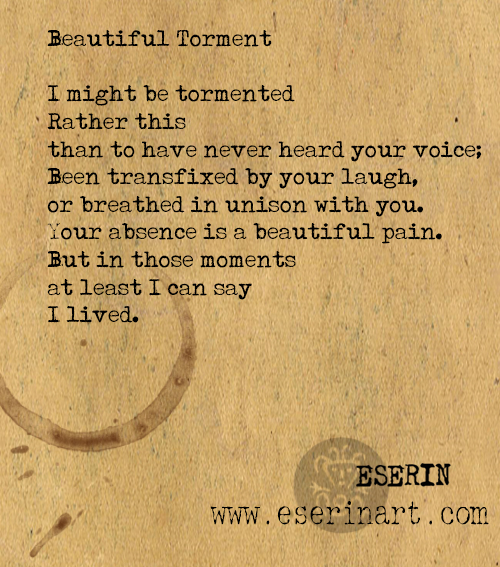The concept of possession has crept into our culture and our language has changed to accommodate it. It is a challenging form of delusion which is I think, robbing us of contentment. Everything is framed in terms of possession. I have a car, Okay, so that works if I have a car, but it becomes an issue if I try to make a self from it. Then I only have this car, and I want that car, that newer better car. It ceased to be a vehicle to get me from A to B, and became a vehicle for a delusional self, as though this better car is going to make me a better person.
What about “I have a good job.” Here we see possession. I can’t possess a job, I can do a job, it is a process, a function. In saying I have a good job I miss out the deeper truth, I experience contentment when engaged in my work. It is not a possession then, but rather an experience. There is a place for doing of course, just as there is a place for possession, but it can not replace experience and the expression of experience, it can not be used to build a self.
I could say I have a happy marriage? Well I might well experience joy in my marriage, but I cannot own or possess my marriage in the have sense. It sounds like a semantic twist I am sure and yet there is here a split between owning/having and being. The word being denotes the essential essence of a thing, a person, a being. We have stopped looking at that and started looking to people as objects. Explained by exterior decorative factors rather than experienced by their essence.
Do I have a wife? No, I am married. I am in relationship with someone and experience a connection to their essence, their being, what we might call their ontological presence. But there is and can be no possession. This is a choice to be and experience being, where there is a need for possession it is not love, it is dependency. We have grown so used to using this terminology that we have lost sight of what we are really implying, and we have lost sight of our experience of being. Which we have not even begun to explore or explain in the sentence “I have a wife”. In short we have given the deeper experience away with our need to possess.
I had a conversation with a friend about this, who was rather indignant about my accusation that we are all trying to possess others to make ourselves something; but when it came to me asking how he would describe his relationship without talking of doing or having, he was stumped. Really, couldn’t think of anything which was about being. Its not that they have a poor relationship, its that our vocabulary has become so attuned to possession or doing that we have lost the ability to conceptualise and relate experience of being.
There is an old saying, “we are human beings not human doings” and this is true, but it might be wise to extend this truth further; “we are neither human doings nor human havings, we are human beings”. In a culture which derives self from having, consumption or doing, there is little space for being, and therefore little space for us. This is how someone can see there is a housing crisis and still own two or more properties to make money (possession to build a self) whilst knowing that this restricts housing to those who need it. The people without property are objectified, reduced to animals, mere commodities to be used to build a self from.
This is my note from my mornings meditation:
There is self,
And there is no self.
Where self exists I have created it from memories and interactions with the world and other beings.
Where no self exists there is only love, nothing else.
That place of no self is hard to find because the ego doesn’t want to die, it wants to have, it wants to do, to be seen having and doing. But it must die if there is to be no self. So, fear arises and I step back into ego and self.
But the place of no self is, paradoxically, where I feel most me. It feels like coming home.
